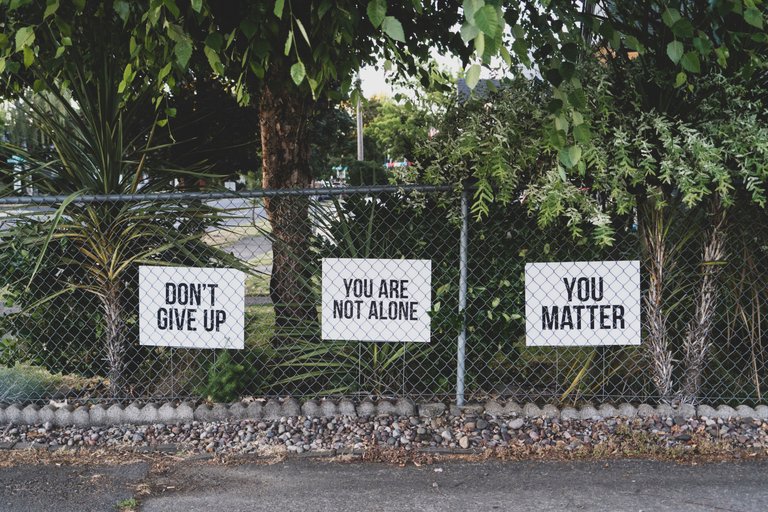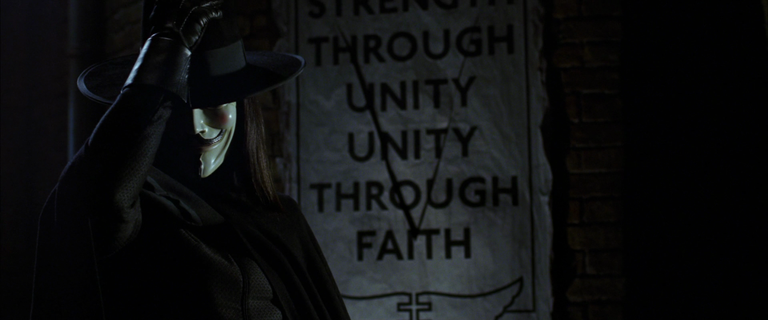So I've long recognized in myself a cycle of self-destructive behavior.

I think that this is normal for people, I think that most people have at the very least some small habit that they actively partake in that is also an active detriment to them. Whether it's smoking, watching TV excessively, drinking/other substance abuse, or any number of things that prevent them from doing something that is instead beneficial (ie. exercising instead of watching TV).
Myself, I have had a lot of struggles with depression, where I definitely have dreams, aspirations, and a thousand things I want to do, but I have tended to struggle with staying motivated. I would fight for this thing and then suddenly everything, including my goal, would seem meaningless to me.
So that's the (short) back story with it.
I feel now is a good time to note that this is going to be covering a some of the dark sides of the world of mental health treatment
It's not to be negative in general, it's just to address some of the issues that I see in the industry before I go into why I think it's a good idea to partake in the industry anyways -- this is more to caution you about some of the things to watch out for

I've been pushing myself to conquer my depression more recently, and have been doing a lot of things to further that goal.
And I've decided to become involved with the world(s) of Therapy and Self-help, both separately and in a combination of the two (clarification later).
I have a pretty significant background with Therapy, due to some events in my childhood which are an entirely separate story. Not only that, but my mother has been in therapy for more than my entire lifetime, and I would say that she had hit rock bottom years ago, never to recover thus far.
Due to these couple of facts, I have had a... definite reluctance to rejoin the world of therapy.
Inevitably, there is a side to this mental health industry which is purely for profit.
I see people being overprescribed medications, and have personally been overprescribed in the past. Not only that, but there are therapists out there who I could say are doing their patients no favors.
I would think that Ideally, therapy would be a place to work through your issues and come out on the other side as a more complete person (implying that there would, indeed, be an other side to come out of). Instead, what I see, is this lifetime of therapy and medications where real progress and improvement is scarce at best.
I feel like it's more of a mere placation, where you sort of feel better about your current lot in life, but you're not really reaching towards a vision.
I'm thinking of that typical session where you simply talk out your struggles and then you're feeling better having gotten that off of your chest. But, as useful as that can be, that's not really the point of going to someone who is knowledgeable about the human psyche, is it?
That's more like a rent-a-friend.
No, therapy should be goal oriented and productive. If it's not moving you towards being a happier, healthier person -- I don't think I could call it therapy.
I see it more as a steady paycheck. From a business perspective, it is much easier to maintain a current client than it is to find a new one. It's much more profitable to keep people placated, but also still dependent on you, than it is to actually have them reach their mental health goals.

The same is true with the self-help industry, though I honestly have a higher opinion of it than I do of the therapy industry overall.
** It is worth noting that I still see both of these things as extremely valuable, and I will get into that later -- but I feel that they have been perverted a bit by commercialism.
As for the self-help industry, it's usually pretty pointed towards having a goal in mind. It's just that some of the advice is really not the best, or the best that these guru's have to offer is often locked behind $1000's pay walls.
But I think that it's in a better state overall because all of the information you could want to improve your mental health is out there for a relatively low cost -- usually in the form of books.
So personally, I'm opposed to many psychiatric drugs in most situations. I know a lot of people who take different psychiatric drugs and while they CAN be very effective as part of a treatment plan, I have actually more often than not seen psychiatric drugs be abused after they've been prescribed.
The abuse of psychiatric drugs has become so common that there is a black market for adhd and anxiety medications on college campuses all over the US. I know multiple people who had gotten their doctors to up their dosage higher than they needed it to be just so they could stockpile the excess pills in case if their doctor took them off their meds or they weren't able to get ahold of them.

I honestly feel that they are vastly overprescribed in the first place -- and often as the only real method of treatment. (NOTE: Some conditions absolutely require medication, such as in the case of schizophrenia/other hallucinatory conditions)
For example, someone like me who has had a lot of trauma and what is, honestly, a pretty bad perspective on life. When I was previously in therapy there was sessions with multiple different therapists with different time tables (monthly, biweekly, weekly) and group therapy sessions every weekday, in addition to multiple medications for different "conditions" that I was (in my opinion) misdiagnosed with.
None of it was productive; none of it taught me how to change my perspective, or what to change my perspective to. The therapy sessions were more of vent sessions where I would talk about all my trauma and they would then say "Oh, I see. and how did that make you feel?".
And it all was money.
Granted, I was in a little bit of a different situation, because a lot of what I was involved in was actually a state sponsored program.
I can't say that it was very productive for me emotionally, though I did manage to learn a lot about psychology and therapy on the whole from it -- So I can't say it's the worst thing.
And I learned that I did not want to be on psychiatric medication, nor did I want to be throwing money at therapists every week futilely.
However, I recognize at this point that I am struggling to get through these challenges on my own.
And the landscape of the mental health world is somewhat less bleak due to the advent of technology.
There's a lot you can do now that just wasn't possible 15 years ago, and the culture is less about throwing pills and platitudes at people.
I percieve there to be a lot of great stuff out of the self-help sphere today as well. There was definitely a time where things in the self-help world were packaged in an askew way that turned off a lot of people, but a lot of that strangeness is gone and left is the core of solid advice that had always existed.
Anyways, I feel that this post has already become overly verbose.

Thanks for coming by,
- Guurg
P.S.:
We'll delve further into what I actually do recommend as far as therapy/self help is concerned next time. There's definitely some good stuff out there. I see this as being a 3 part series.
Pt 1: Commercialized mental health
Pt 2: Therapy in the modern day
Pt 3: A crisis of purpose
P.P.S.:
This will probably be the most pessimistic sounding part. Didn't really mean for it to be such.
Image Sources:
Unsplash - Dan M
Unsplash - Ian E
Giphy - Crying money
The other two are screenshots from The wolf on wallstreet and V for Vendetta
All those mind-altering pills from the global medical complex... and when you search help anywhere else they call that physical illness too 😒